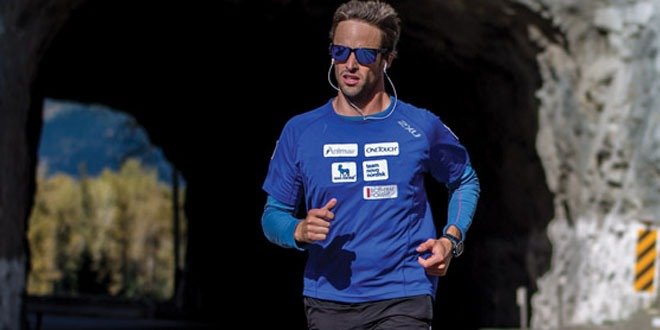
Sébastien Sasseville has been on a number of journeys, both geographical and spiritual. He reached the summit of Mount Everest in 2008, ran across the Sahara desert in 2012, and did a cross-country run across Canada the next year. (Fittingly, he completed that run on November 14, World Diabetes Day!) Currently, he is a motivational speaker who has given more than 200 presentations throughout North America.
As a motivational speaker, Sébastien brings his story to people in a variety of corporate sectors, focusing not on the athletic project itself, but on what it means. “I speak on topics like leadership and peak performance, based upon what I learned during the cross-country running process, and how it is applicable to people from all walks of life,” he says.
Recently, he has been working on a documentary film about his run across Canada. Distributed by the National Film Board, it will be released soon. He’s also in the throes of finishing a book about the journey. “It’s not so much a journal or biography,” he notes. “Rather, it touches on the lessons I learned and how they can be applied to everyone’s everyday challenges.”
He is also considering ideas for his next “big journey.” The right idea hasn’t gelled yet – it might be swimming the English Channel in the next few years – so in the meantime, he is preparing for a triathlon in 2017, and training at least three hours each day.
Sébastien’s main goal – in sports and in life – is to inspire and empower. “My core message is about living a full life, an accomplished life, despite any perceived obstacles,” he says.
Most importantly, it’s all about taking that first step: “That is crucial because perhaps at the start of a journey or a project, you might not be in a position to complete it,” he notes. “However, you take the first step, and then you keep taking individual steps toward your goal. You grow and learn along the way, if you just keep taking those steps. Don’t allow fear of the last step to prevent you from taking the first one.”
Part of Sébastien’s main message includes the concept of redefining obstacles and failures. Instead of avoiding them, he encourages people to think about them as necessary ingredients for success. “People often ask me how I overcome failure or challenges, and my reply is always, ‘Why would I want to overcome them?’” he says. “Your failures tell you what you didn’t do right and, from there, help point you in the right direction.”
The most important factor in motivation is having a sense of utility, and that’s what diabetes gave to Sébastien. “For years, my mindset revolved around proving myself, but now it’s about being useful to others,” he says. “Being useful and making a difference are incredibly powerful feelings.”
Before he was diagnosed with diabetes, at age 22, Sébastien acknowledges that he had a fertile imagination – he wanted to see the world and do great things – but, at that time in his life, he didn’t have the discipline or method to fulfill his ideas. “Diabetes gave a higher purpose to the things I wanted to do,” he says. “That’s why, in many ways, I’m so thankful for this diagnosis because I believe – by providing a sense of utility and giving me the gift of feeling powerful – it allowed me to accomplish all the things that I have done.”
As for the future, Sébastien wouldn’t change a thing. He wants to keep doing exactly what he’s been doing for the past few years. “If I could continue to be active and work on a big project every five years, it would be a gift,” he says. “The fact that I don’t want to change anything tells me I’m doing something right!”
The inspiration section and articles have been made possible by and sponsored by Animas Canada.
Animas Canada first spoke with Sébastien in 2014. You can read his original story here.

